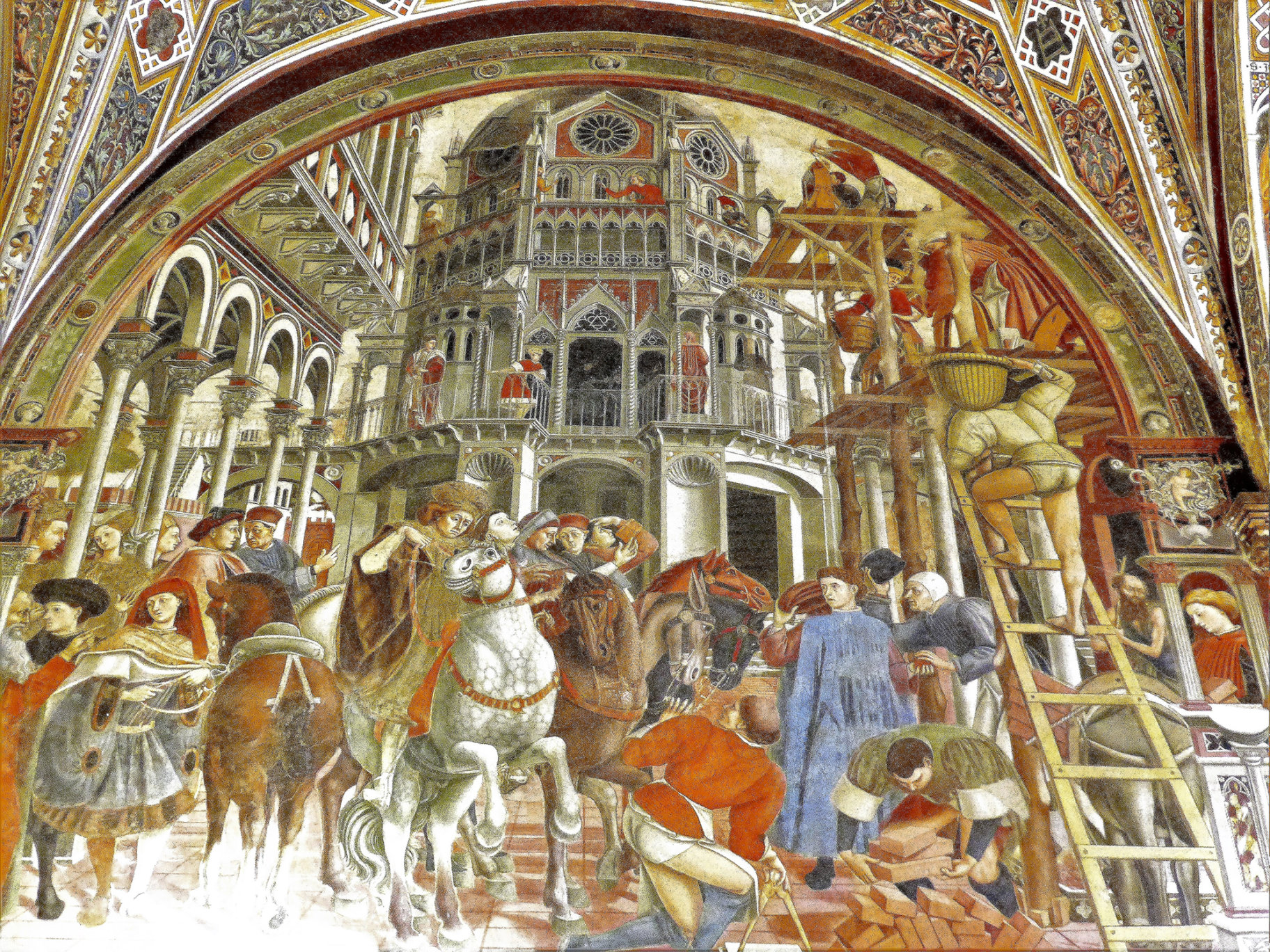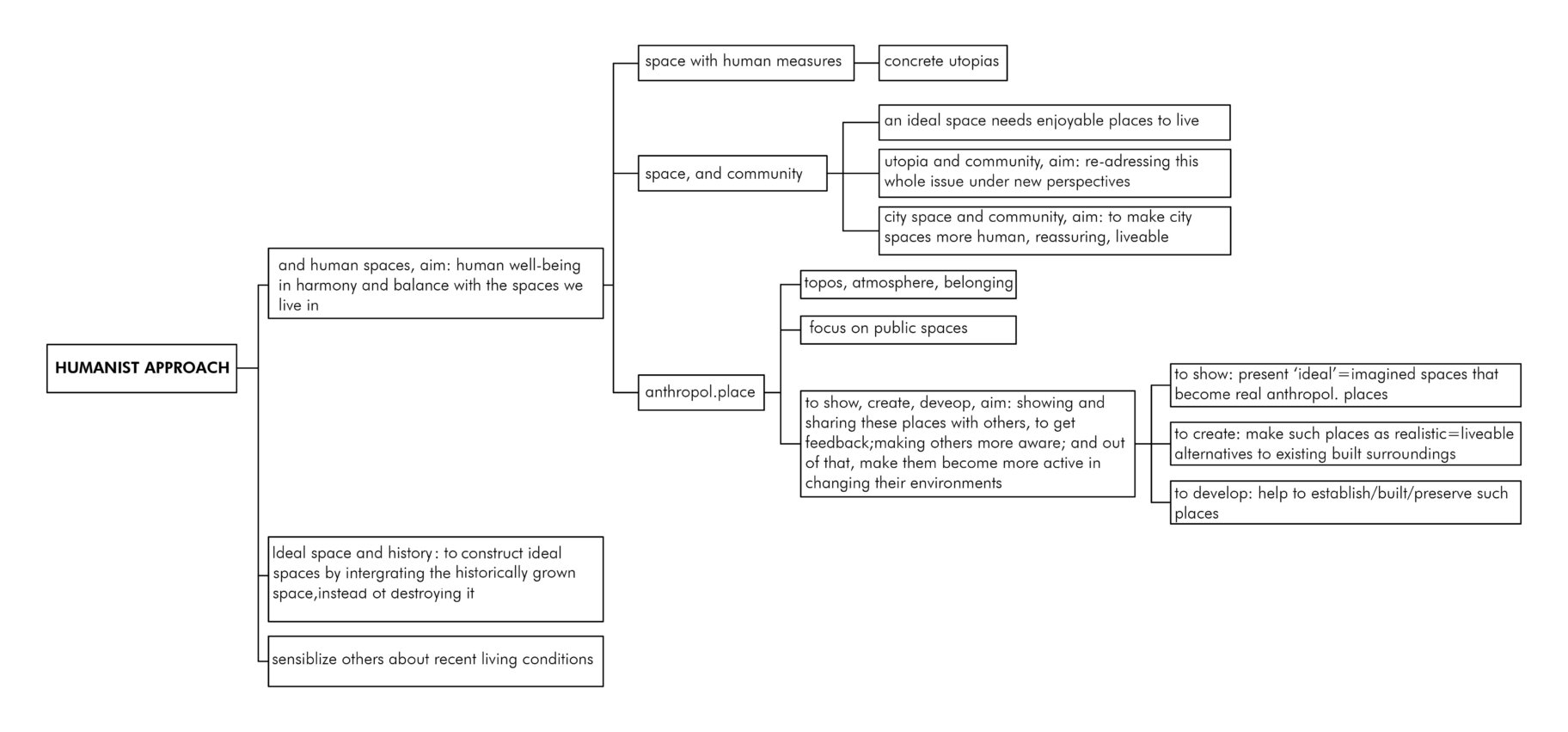Manifesto
Ideal Spaces is an art and research project that aims to explore and experience/create spaces of social and imaginative relevance. Our team, the Ideal Spaces Working Group, is engaged with the theme ‘ideal’ spaces, and explores how space is practiced, planned, imagined and experienced.

When we speak about built spaces, architecture is not only about the built environment, but also about social dreaming and imagination, as expressed in ‘ideal’ spaces, with their impact on architecture, art, and human hopes.
Related to this are the more ‘practical’ aspects, namely enabling and generating new spaces for communities.
If we understand architecture not only in its physical terms as a built, material space but in a wider sense as a deliberately constructed organizational order, then architecture is also about organization, comprising not only its visible but also its “immaterial” dimension. Take for instance the architecture of an internet-based social medium, or the organizational architecture of an institution, an ‘ideal’ community, an ideal utopian state.
In both these material and immaterial examples, architecture forms spaces. These spaces are the subject of humans who live on their own terms and include communal spaces, such as the workplace, private housing and social media-groups, to name just a few. Humans make up communities, willingly or not, planned or not. And these humans have hopes for a “better”, if not more human space, which they can populate in the future and strive for in the present: an ideal space.
Ideal spaces are ideal in a double sense: derived from the Greek idea and eidos as an (inner) image, they are “ideal” as spaces that are imagined; on the other hand, they denote perfected, or even utopian spaces. For further detail, please listen to our recent podcast episode: Notions of Space.
In both readings of the term ‘ideal’, an ideal space relates to utopian space, an old theme deeply embedded in our cultural memory, which has never lost its actuality and appeal. In light of recent conditions, it seems we need to re-address this concept more than ever.
The Ideal Space is a mythic theme, full of hopes and dreams, but is at the same time, very practical. Nowadays, the majority of people live in urban agglomerations, which are far from being ‘ideal’. They are chaotic and are accompanied by the literal destruction of space, unprecedented in history. In parallel, never before have so many technical possibilities existed, creating fictive spaces that allow people to escape into worlds of fantasy, dream, and gaming. Space is lost, and is at the same time multiplied. But human beings need space, also real ones that are human, and they also need community.
Spaces that are used by communities are known as places, not just spaces. They are a type of anthropological place (Marc Auge), a place of identity, history, and belonging. The work of Ideal Spaces Working Group therefore concentrates on the relationship between community and place, following a humanist approach, in accordance with the saying of Protagoras and the Renaissance humanists that “the human is the measure of all things’. This approach emphasises the importance of regaining a human measure in architecture; no matter if the architecture is material, or “just” an immaterial mode of organisation. This means developing spaces, including “immaterial” spaces of organisation, into spaces with a more human focus; and not by following neoliberal economic frameworks and associated techno-infrastructural needs. To find out more about this topic, please listen to our podcast episodes on Managed Space,…, and on Functional Space,…
Our mission
Our humanist approach:

Our range of activities, based on the humanist approach include:
- Exhibitions and events
- Symposia and workshops
- Active assistance and consulting in the creation of places for communities: to provide a holistic and human measure-oriented perspective on the planning of spaces, in the direction of places for communities
- Research
- Collaboration in these fields
What we consider important:
- To provide new perspectives, for enabling a true experiencing and imagining of space, through visualisation and conceptualisation
- The conception of spaces as gestalt
- Basic assumptions, first and foremost about a conditio humana or general human condition (what is ‘human’), which underlies processes in architecture and urban planning
- Also in historical terms, as regards the evolution of utopias/ideal cities/communal spaces
The Installment of an urban anthropology that is truly interdisciplinary, in establishing a trilogy of urban planning/architecture/human place. This kind of anthropology is missing, and is not identical with urban sociology.
- Research on the components of this type of anthropology, such as:
- What makes a space to a place for community,
- Spaces as systems, and space/place as gestalt,
- Genius loci and atmosphere,
The practical outcome of this research are measures for place creation
